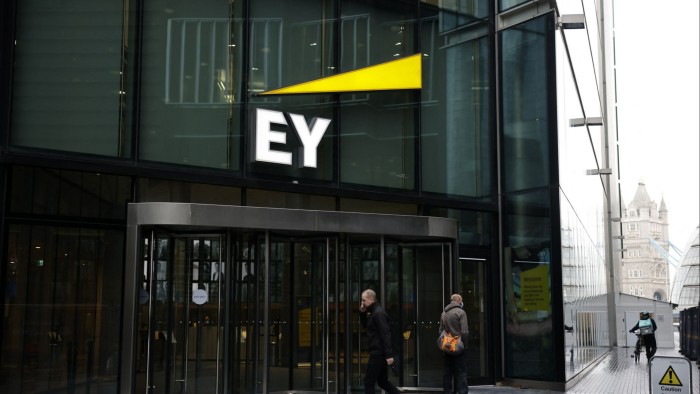Unlock the Editor’s Digest for free
Roula Khalaf, Editor of the FT, selects her favourite stories in this weekly newsletter.
EY has signed up its first new Dax-listed audit client since the collapse of payments group Wirecard despite a ban on winning auditing mandates from listed German companies.
Qiagen, a biotech group listed in New York and Frankfurt, has hired the Big Four firm as its new group auditor from January, when it will replace KPMG, which has held the mandate for a decade.
EY took on the mandate months after accepting a two-year ban on taking on new listed audit clients in Germany following alleged violations of its professional duties in its audits of Wirecard, which collapsed in 2020 in one of Europe’s biggest ever accounting scandals.
The mandate from Qiagen, which has €2bn in annual revenues and a market capitalisation of €10bn, highlights the limitations of national audit regulation in Europe.
While Qiagen’s European operational headquarters is in the German town of Hilden near Düsseldorf and the company is one of the 40 members of Germany’s blue-chip Dax index, it is incorporated in the Netherlands, having moved its legal headquarters to Venlo in 1996.
“We are a Dutch incorporated company with global shares listed in the US on the NYSE and also in Germany,” Qiagen said in a statement.
German audit watchdog Apas did not immediately respond to a request for comment.
The Wirecard fraud plunged EY Germany, which had issued unqualified audits for the payments group for almost a decade, into crisis. Despite repeated whistleblower complaints and critical press coverage, the firm missed that €1.9bn in corporate cash and half of Wirecard’s revenue were fake.
After a multiyear investigation, Apas concluded that EY’s audits had been “at the very least” negligent and in some cases grossly negligent, the Financial Times previously reported. However, it did not establish whether the firm had acted with criminal intent.
Qiagen told the FT in its statement that it had “conducted a thorough review of the small group of global audit firms” that could work for it, given the requirement to meet both US and EU standards.
The company added that shareholders “voted 99.9 per cent in favour” of EY at Qiagen’s latest annual meeting in June. It formally mandated EY’s Dutch division Ernst & Young Accountants LLP but it also signed an engagement letter with the Big Four firm’s German unit.
Following the Wirecard scandal, EY lost a series of high-profile German audit clients, including Commerzbank, Deutsche Telekom, DWS and state-owned lender KfW, and did not win any new mandates even before the two-year ban formally started to bite this year.
The firm has overhauled its German legal structure to separate audit and consulting services, leading to allegations from former Wirecard shareholders over potential asset stripping that they claim will make it harder if not impossible to enforce damage claims over its allegedly flawed audits of the defunct payments group.
Former investors and Wirecard’s administrator are suing EY for billions of euros in damages in a series of slow-moving and long-running lawsuits whose outcomes remain uncertain.
People familiar with the matter told the FT that EY was pitching for a series of additional high-profile audit mandates in Germany that will become available from 2026, including pharma and agrochemicals group Bayer, retailer Metro and holiday operator Tui.
EY declined to comment.







